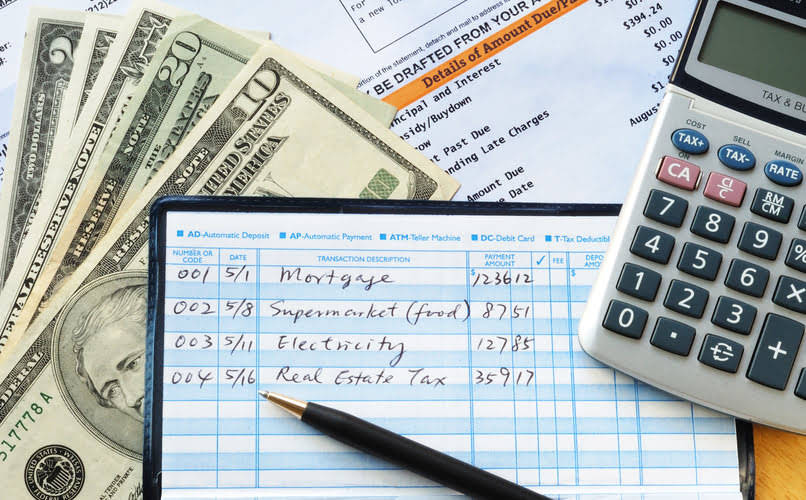FOB Destination: What It Means for Shipping, Payment, and Accounting

This agreement ensures that all payments and legal obligations related to the shipment are the seller’s until the goods reach the buyer. Ex Works (EXW) is a shipping term that assigns most of the responsibility for collecting the goods or packages to the buyer. The buyer must collect and pay for the goods as soon as the seller indicates the order is ready, or the buyer must make payment only when the packages are received https://www.bookstime.com/ at an agreed-upon location. Transfers to the buyer at the point of origin when the goods are shipped, along with the risk of loss.
Company

If your items are expensive, unique, or in a category where obtaining insurance is difficult, negotiating for FOB destination may be a better option. When you agree to receive items under FOB shipping point terms, it’s essential to be aware of your liabilities. DDP means “delivered duty paid.” Under this Incoterm rule, the seller agrees to deliver goods to the buyer, paying for all shipping, export, and import duties and taxes. Shipping costs are usually tied to FOB status, with shipping paid for by whichever party is responsible for transit. The seller holds the responsibility and risk of shipment at the FOB destination point.
Who Retains Risk in FOB Shipping Point?

FOB (Free On Board) means the seller’s responsibilities end once the goods reach the ship’s rail, so the buyer takes over. As opposed to “delivered”, which means that the seller bears all risks and costs until the goods get to the buyer’s destination. While the seller does bear higher costs under FOB destination, they can factor shipping costs into pricing. Under CPT, or “carriage paid to,” the seller pays for delivery of goods to a carrier or nominated location and assumes risks until the carrier takes possession. CIF means “cost, insurance, and freight.” Under this rule, the seller agrees to pay for delivery of goods to the destination port, as well as minimum insurance coverage. FAS stands for “free alongside ship” and is often used for bulk cargo transactions.
FCA or Free Carrier
In this circumstance, the billing staff must be notified of the changed delivery conditions so they do not charge freight to the consumer. However, the buyer subtracts the shipping charges from the supplier’s bill rather than footing the bill out of pocket. If you’re in the shipping industry, you need to be familiar with the shipping term FOB destination and all it implies.
These laws use specific terms outlined in detailed contracts to define delivery time, payment terms, and when the risk of loss shifts from the seller to the buyer. These terms are published by the International Chamber of Commerce (ICC) to help navigate the complexities of international trade and differing country laws. FOB matters because it determines who is responsible for the cost and risk of the goods during shipping. Depending on the FOB terms, the seller or the buyer must pay for the transportation, insurance, customs clearance, and any loss or damage that may occur in transit. FOB also affects the accounting and taxation of the goods, as it defines when the revenue is recognized and who owns the inventory.
- If you’re in the shipping industry, you need to be familiar with the shipping term FOB destination and all it implies.
- Alternatively, work with the seller to add additional coverage for shipping costs into your contract.
- Free On Board/Freight Board Shipping, AKA FOB Shipping, is a shipping term used to show if the seller or buyer is liable for the damage or destruction of products while shipped internationally.
- Because of this, misunderstanding FOB shipping point terms can be costly for buyers.
- International commercial laws standardize the shipment and transportation of goods.
- Therefore, it is vital for both the buyer and seller to understand and agree on the FOB designation before signing a contract.
Therefore, when the goods are being transported to the buyer, they are owned by the buyer and the buyer is responsible for the what happens when merchandise is delivered fob shipping point shipping costs. Ultimately, the choice of FOB shipping term depends on the specific needs and requirements of the business. It’s crucial to carefully review the sales contract and understand the terms and conditions of the FOB shipping agreement before making a decision. By doing so, businesses can ensure they select the most suitable shipping terms to manage their costs and risks effectively. Choosing the right FOB shipping term is essential for managing shipping costs, risks, and responsibilities effectively. FOB shipping terms determine who is responsible for the cost and risk of the goods during transit, which can significantly impact a business’s logistics and financial planning.

What does FOB price refer to in international shipping?
FOB shipping point, or FOB origin, means the title and responsibility for goods transfer from the seller to the buyer once the goods are placed on a delivery vehicle. This transfer of ownership at the shipping point means the seller is no longer responsible for the goods during transit. Instead, the buyer assumes all responsibility for the shipment when it leaves the seller’s dock. FOB status says who will take responsibility for a shipment from its port of origin to its destination port. It indicates the point at which the title of the goods transfers from the seller to the buyer, and therefore who needs to cover the costs of transit and deal with any issues. For the buyer, FOB Destination means that the retained earnings goods are not recorded as inventory until they are received at the buyer’s location.

Both parties must carefully consider the impact on financial statement disclosures, with sellers potentially reporting deferred revenue and buyers detailing outstanding purchase commitments. Accurate reporting ensures stakeholders can assess financial health and compliance effectively. Conversely, with FOB destination, the title of ownership transfers to the buyer once the goods reach the buyer’s loading dock, post office box, or office building. This means the seller retains ownership and responsibility for the goods during the shipping process until they’re delivered to the buyer’s specified location. Selecting the appropriate FOB (Free On Board) shipping terms is crucial for effectively managing your business’s shipping costs, risks, and responsibilities. In the world of logistics and supply chain management, understanding shipping terms is essential for businesses to manage costs, risks, and responsibilities.
